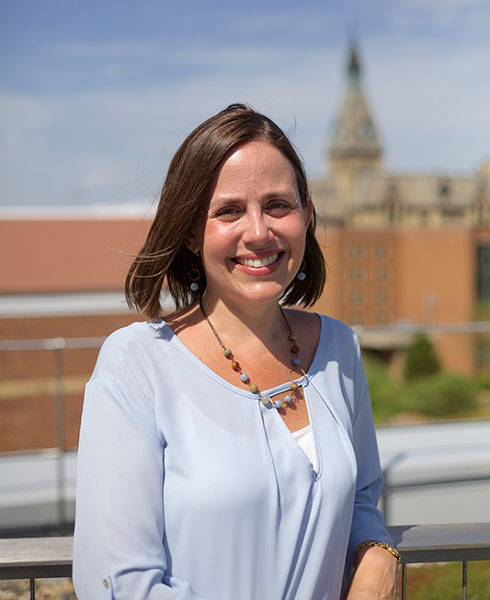My Story
Before fall of 2008, I was living what I call my 95% ideal life. I had married my college sweetheart, found a job at a Minnesota university close to family, and was busing being a professor, spouse, and parent of two lovely children. I was getting to teach religion to undergraduates and write and speak about the legacy of sixteenth century reformer Martin Luther and the ongoing relevance of his theology for contemporary issues like feminism and white privilege.
Then cancer came along and forced me to resign from my full and wonderful life.
The diagnosis: metastatic breast cancer. The prognosis: lousy. In 2009, I went on sabbatical (I thought) to prepare to die. Instead I went into remission and wrote Hoping for More: Having Cancer, Talking Faith, and Accepting Grace (Cascade, 2012), a book that has altered the course of my writing and my scholarship. Since then I have spent much of my time speaking to groups about how to care for one another during the worst times of our lives.
Before cancer upended my life I had agreed to write a commentary on the biblical book of Deuteronomy. After cancer the editors assured me I could pass on the assignment. But study of this overlooked biblical book captivated me, especially its attempts at making sense of the suffering of the ancient Israelites. In 2014 my Deuteronomy commentary was released (by Westminster John Knox) and I was delighted when it was awarded “resource book of the year” by the Academy of Parish Clergy.
Perhaps the biggest surprise for me of life post-diagnosis has been the way in which love, care, support, and concern has come my way via the virtual world. Before cancer I was a proud skeptic of digital technology’s ability to help us connect to others in meaningful ways. But being cared for virtually has converted me to the reality of what I’m calling “the virtual body of Christ,” a vast network of healing connections made possible through digital technology. My conversion experience led to the writing of The Virtual Body of Christ in a Suffering World (Abingdon, 2016). In it I propose a theology of virtual reality that promotes use of digital technology as a vital tool to better support others during the most awful times of their lives.
Living with incurable cancer for over a decade has been a great privilege, but living with a chronic illness also has its challenges. My latest book, Glimpsing Resurrection: Cancer, Trauma, and Ministry (Westminster John Knox, 2018) draws on recent research on illness-related trauma and the insights it provides on what it’s like to be undone by cancer and other serious illnesses. I use trauma research to call for an expansion of the stories we tell about cancer as well as about faith, and I explore places in the Christian story that make space for those undone by serious illness. When we acknowledge and make space for being undone, and acknowledge that God is in those spaces as well, we can catch glimpses of resurrection in this world and the next.
After twenty-three years of teaching religion at Hamline University, a wonderful liberal arts institution in St. Paul, Minnesota, I’ve been called back to my alma mater, St. Olaf College, to serve as the inaugural Director of the Lutheran Center for Faith, Values, and Community and the Martin E. Marty Regents Chair in Religion and the Academy. It’s with great excitement that I rejoin the St. Olaf community as it strives to embodied its Lutheran heritage in a way that is intentionally and enthusiastically interfaith as well as engaged with those of no faith. I’m thrilled and grateful to be able to embrace this new vocational direction and look forward to this new phase of life that is grounded and supported by all that’s come before.


You must be logged in to post a comment.